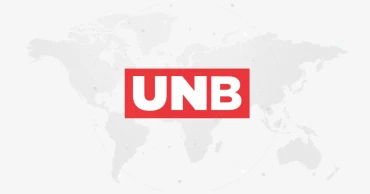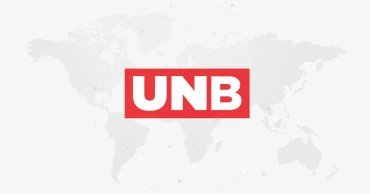ECOSOC
ECOSOC Forum: Dhaka stresses mitigating gaps ICT, health, education gaps
Permanent Representative of Bangladesh to the United Nations Ambassador Rabab Fatima has said the lack of infrastructure, especially in the areas of ICT, health, and education is acutely felt during the ongoing COVID-19 pandemic.
"Therefore, it should be our urgent priority to build adequate infrastructure in all these areas," she said.
The envoy made remarks while speaking at a virtual panel discussion on ‘Accelerating infrastructure investments for a sustainable and resilient recovery and restoring trade’ at the ECOSOC (United Nations Economic and Social Council) Forum on Financing for Development in New York on Tuesday.
Highlighting the critical importance of digital infrastructure for providing vital services to people, Ambassador Fatima urged the developed countries to ensure much needed technology transfer to LDCs and other vulnerable countries.
Also read: ECOSOC chief focuses on pandemic, SDGs, climate action
She also underscored the importance of ensuring fast recovery from the pandemic as well as better resilience against current and future shocks.
Ambassador Fatima called for the integration of the disasters and climate change issues into investment decisions to build long-term sustainability and resilience.
Underlining the weaknesses of the global supply chain infrastructure, she emphasized the need for further improvement of trade infrastructure including in the areas of transit, transportation, and shipping etc.
The envoy put specific focus on the grants and long-term concessional financing in infrastructure investment, public-private financing, blended financing, south-south and triangular cooperation etc.
She urged the advanced economies to fulfill their unmet promises in the areas of DFQF market access and other trade benefits to LDCs.
Also read: Bangladesh elected ECOSOC member
The 2021 ECOSOC Forum on Financing for Development is being held from 12-15 April 2021 in New York.
Finance Minister AHM Mustafa Kamal is leading the Bangladesh delegation.
He delivered a pre-recorded statement at the special segment of the Forum held on April 12.
Bangladesh also participated in the Special High-level Meeting with the Bretton Woods Institutions (World Bank and IMF), WTO and UNCTAD on Tuesday.
4 years ago
Dhaka for creating jobs, other opportunities for those left behind
Bangladesh’s Permanent Representative to the UN Ambassador Rabab Fatima has called for creating employment and other opportunities for those people who are left behind.
4 years ago
Covid-19 vaccines for all: An ‘acid test’ for global leaders
Equitable distribution of Covid-19 vaccines will represent an “acid test” for the international community.
5 years ago
Bangladesh elected EB member of 3 UN bodies
Bangladesh has been elected member of the Executive Board of the UNDP, UNFPA and UNOPS securing the highest votes -- 53 out of the 54 with 1 abstention - for the term 2021-2023, beginning from January 1, 2021.
5 years ago
ECOSOC chief focuses on pandemic, SDGs, climate action
Economic and Social Council (ECOSOC) President Munir Akram said now is the time to implement policies and commitments to recover from the impact of COVID-19 pandemic, achieve the Sustainable Development Goals (SDGs), and implement the Paris Agreement on Climate Change.
5 years ago
Modi calls for reformed multilateralism with a reformed UN at its center
Indian Prime Minister Narendra Modi has highlighted India’s role in its region as a first responder to COVID-19 crisis as he delivered a keynote address virtually at this year’s High-Level Segment of the United Nations Economic and Social Council (ECOSOC) session on Friday.
Prime Minister Modi recalled the support provided by the Indian government and Indian pharma companies for ensuring medicine supplies to different countries, and for coordinating a joint response strategy among SAARC countries.
This was the first address by PM to the broader UN membership since India’s overwhelming election as a non-permanent member of the Security Council on June 17, for the term 2021-22, according to Press Information Bureau of India.
The theme of the High-Level Segment of the ECOSOC this year is “Multilateralism after COVID19: What kind of UN do we need at the 75th anniversary”.
Coinciding with the 75th Anniversary of the founding of the UN, this theme also resonates with India’s priority for its forthcoming membership of the UN Security Council.
Modi reiterated India’s call for a ‘reformed multilateralism’ in a post-COVID-19 world, which reflects the realities of the contemporary world.
In his address, he recalled India’s long association with the ECOSOC and the UN’s developmental work, including for the Sustainable Development Goals.
He noted that India’s developmental motto of ‘SabkaSaath, SabkaVikaas, Sabka Vishwas’ resonates with the core SDG principle of leaving no one behind.
Modi pointed out that India’s success in improving the socio-economic indicators of its vast populationhas a significant impact on global SDG targets.He spoke about India’s commitment to also support other developing countries in meeting their SDG targets.
He spoke about India’s ongoing development efforts, including for improving access to sanitation through the “Swacch Bharat Abhiyan”, empowering women, ensuring financial inclusion, and expanding availability of housing and healthcare through flagship schemes such as the “Housing for All” programme and the “Ayushman Bharat” scheme.
He also highlighted India’s focus on environmental sustainability and bio-diversity conservation, and recalled India’s leading role in the establishment of the International Solar Alliance and the Coalition for Disaster Resilient Infrastructure.
This was the second time that Prime Minister addressed the ECOSOC.
He had earlier delivered the keynote address at the 70thanniversary of the ECOSOC in January 2016.
5 years ago




.jpg)


